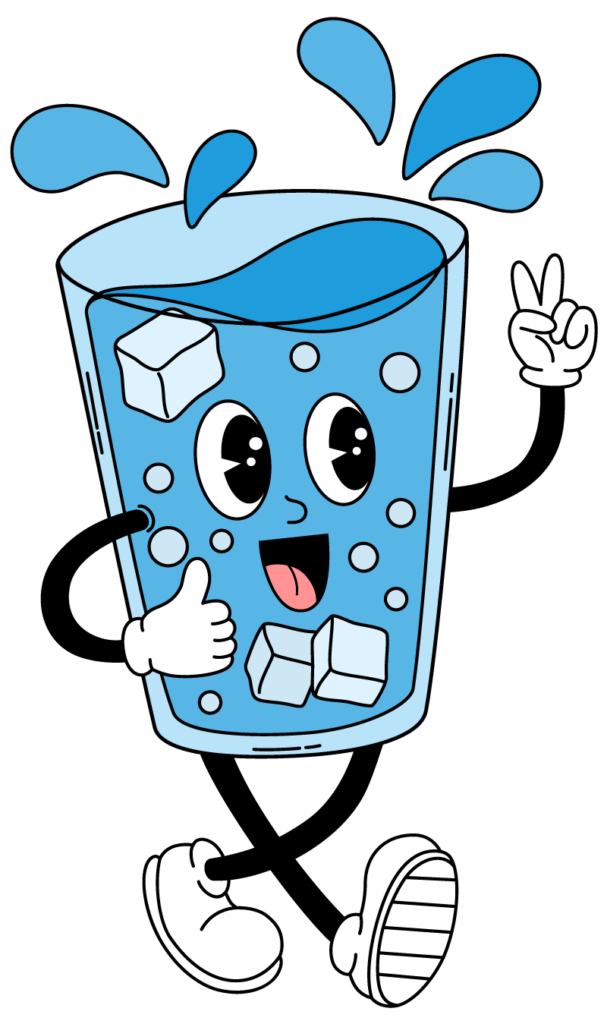Everyday, we need to drink liquids. Why? Because the average human body is more than 60% water. Liquids make up:
- 83% of your lungs
- 66% of your brain
- 64% of your skin and
- 31% of your bones.
Water is essential for your body because it helps:
- Lubricate your tissues and joints
- Remove body wastes
- Regulate your temperature
- Maintain the balance of electrolytes in your body
- Provide fullness cues so we don’t overeat
- Improve cognitive function, physical performance and prevent health problems such as kidney stones and urinary tract infections.
While we can go a long time without food, within hours without liquids, the body starts to suffer the effects of dehydration which include:
- Dizziness
- Extreme thirst
- Loss of energy

So, how much Water should We Drink?
The amount of water (or similar liquid), we should consume depends on age, sex, activity level, health conditions (illness, pregnancy for example), and where you live.
And remember, not all liquid intake comes from water or similar liquids. You can get hydration from a large number of foods, especially fruit and vegetables, soups and stews.
People must also not go overboard. It is possible to drink too much liquid and it happens when the amount of water in your system overwhelms your kidneys and they can’t keep up with a normal filtration rate. This reduces your blood sodium content and can cause your cells to swell.
How do I know if I’m drinking enough water?
The best indicator of good hydration is your body and signs you are not getting enough liquid include:
- The colour of your urine. If your urine is pale yellow or clear after you urinate, this shows you are hydrated. Dark yellow or amber colored urine is a sign your body needs fluids.
- Headaches, migraines, bad sleep, constipation, dizziness, and feeling light-headed or confused can also be symptoms of dehydration. “Half your body weight in ounces is a great starting point,” she says.
What Can you Do to Increase your Liquid Intake?
- Reduce the use of alcohol and caffeinated beverages which increase dehydration.
- Drink ice cold liquid or add a flavour with a fruit slice or berry.
- Use smaller water bottles and refill them instead of filling a huge water bottle which can be intimidating.
- Split your day into time slots and set a goal in each section. That way you’re keeping up steady supply of liquid instead of trying to gulp it all in one go.
Eat your liquid by consuming soups, stews, and juicy fruits and veg such as watermelon, oranges, salad, grapes and tomatoes.







